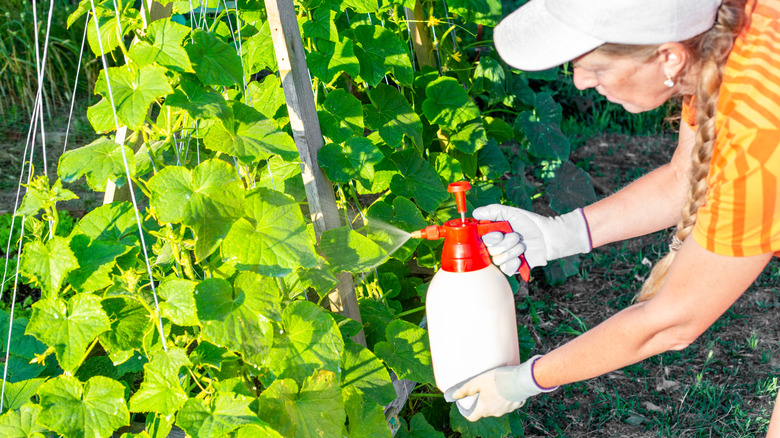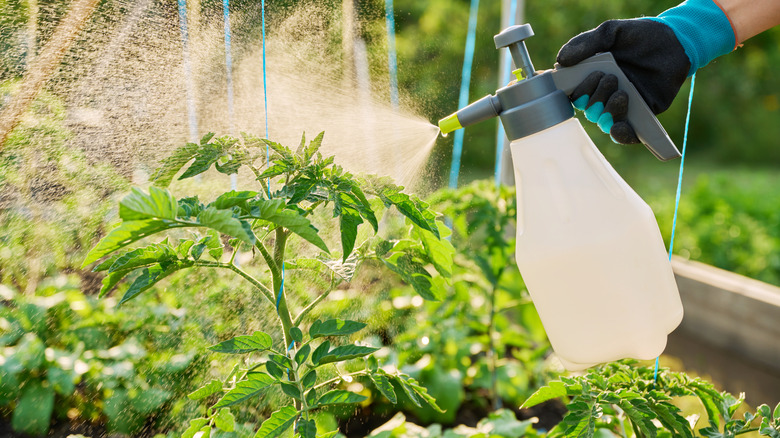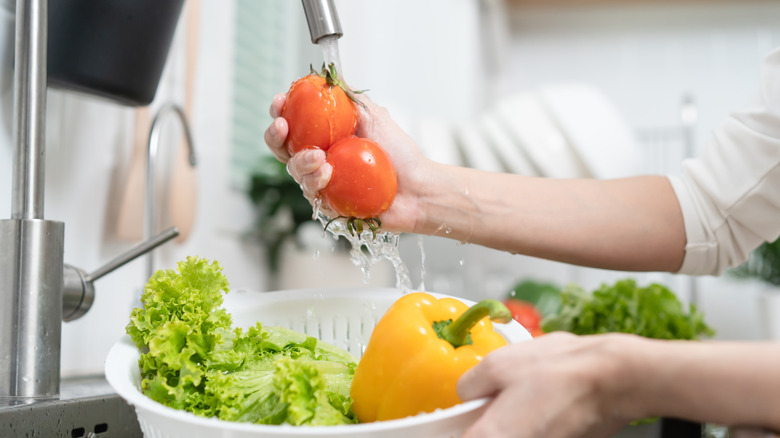Can You Use Natural Pesticide On Plants Right Before Harvest?
The anticipation of picking ripe vegetables is one of gardening's greatest joys, but discovering a pest problem just as they're about to ripen can quickly turn that excitement into worry. Many gardeners incorporate plants that work as natural pest control into their fields to fend off unwanted critters. But what about using natural pesticides on grown plants? Will these compromise the safety and flavor of their soon-to-be-eaten produce?
Most natural pesticides are considered less toxic than synthetic versions, making them a preferred choice for many who grow their own food. However, it's still important to follow the label instructions for any product you choose. Some natural options, such as neem oil, might require a waiting period of about a week before you pick your harvest to allow the product to dissipate or break down. Always look for products approved for food crops and "OMRI Listed" if you're aiming for organic certification.
Regardless of the type of pesticide, thoroughly rinsing your vegetables before eating is a non-negotiable step to remove any lingering residue. This cautious approach helps to ensure your homegrown veggies are free from any pesticides, allowing you to enjoy the fruits of your labor with confidence.
Understanding natural pesticides and their effects
Natural pesticides come from sources found in nature, like plants, minerals, or microorganisms. This origin often means they break down more quickly in the environment compared to many synthetic chemicals, leading to less residue on your plants. Common examples include neem oil, which comes from the neem tree and can disrupt insect growth and feeding; insecticidal soaps, which work by breaking down the protective outer layer of soft-bodied insects; and Bacillus thuringiensis (Bt), a naturally occurring bacterium that specifically targets certain types of larvae like caterpillars.
While these options are generally less harmful to humans and beneficial insects when used correctly, their natural origin does not mean they're perfectly safe for humans. For example, neem oil, despite its organic classification, might leave an unpleasant taste or smell if applied too close to harvest, especially on delicate produce. Always check the specific product label for any recommended pre-harvest intervals, which show the minimum time that should pass between application and picking to ensure safety and quality.
Best practices for post-application and harvest
Natural pesticides are often seen as being harmless, which is a common misconception about organic pest control. Careful handling after application is important for your well-being and the quality of your produce. Proper timing of application can significantly reduce any potential issues. Applying these treatments early in the morning or late evening minimizes contact with active pollinators like bees and allows the pesticide to settle without the harsh midday sun. After applying any pesticides, including natural ones, the most important step before eating is a thorough wash. Simply rinsing your fruits and vegetables under running water can remove a significant amount of residue, dirt, and microbes.
For produce with firm skins, a brush can help with cleaning. Peeling certain fruits and vegetables can also reduce exposure to residue, although it might remove beneficial nutrients. While some suggest soaking produce in solutions like vinegar or baking soda, running water is often just as effective and widely recommended by food safety authorities. Adopting these simple steps ensures your fresh harvest is clean and ready for eating.


